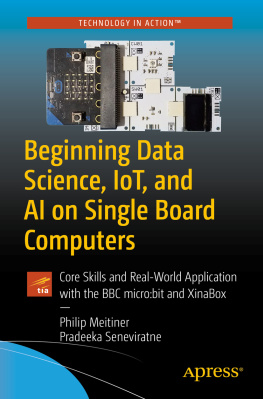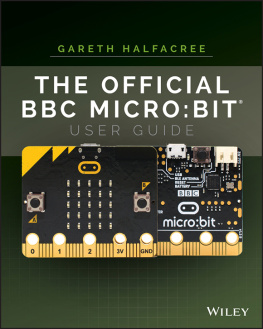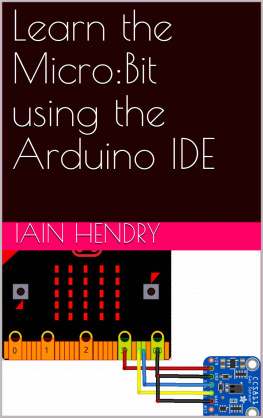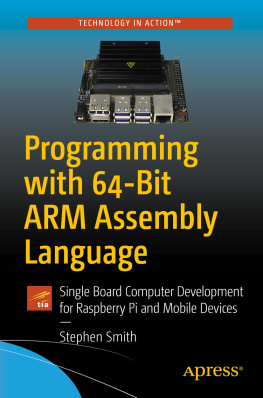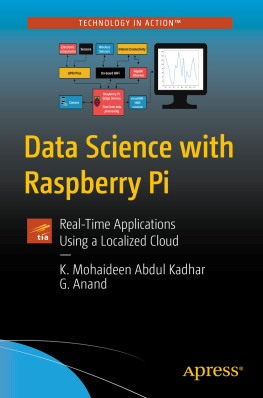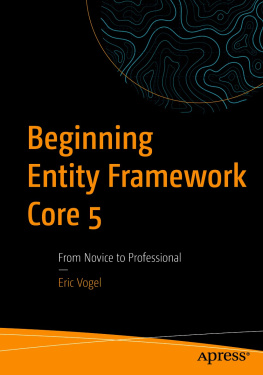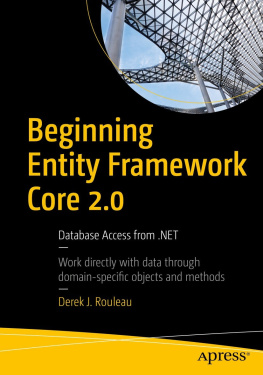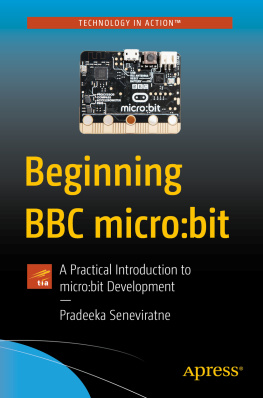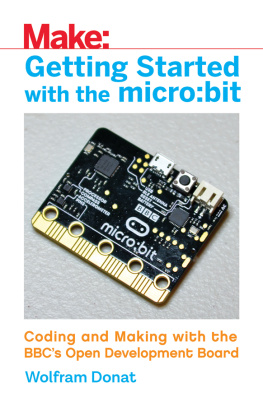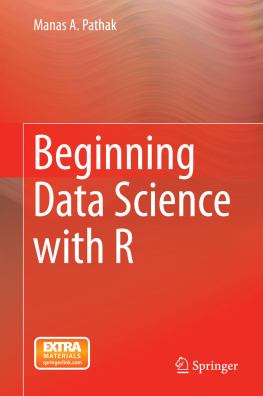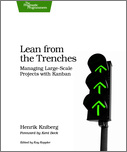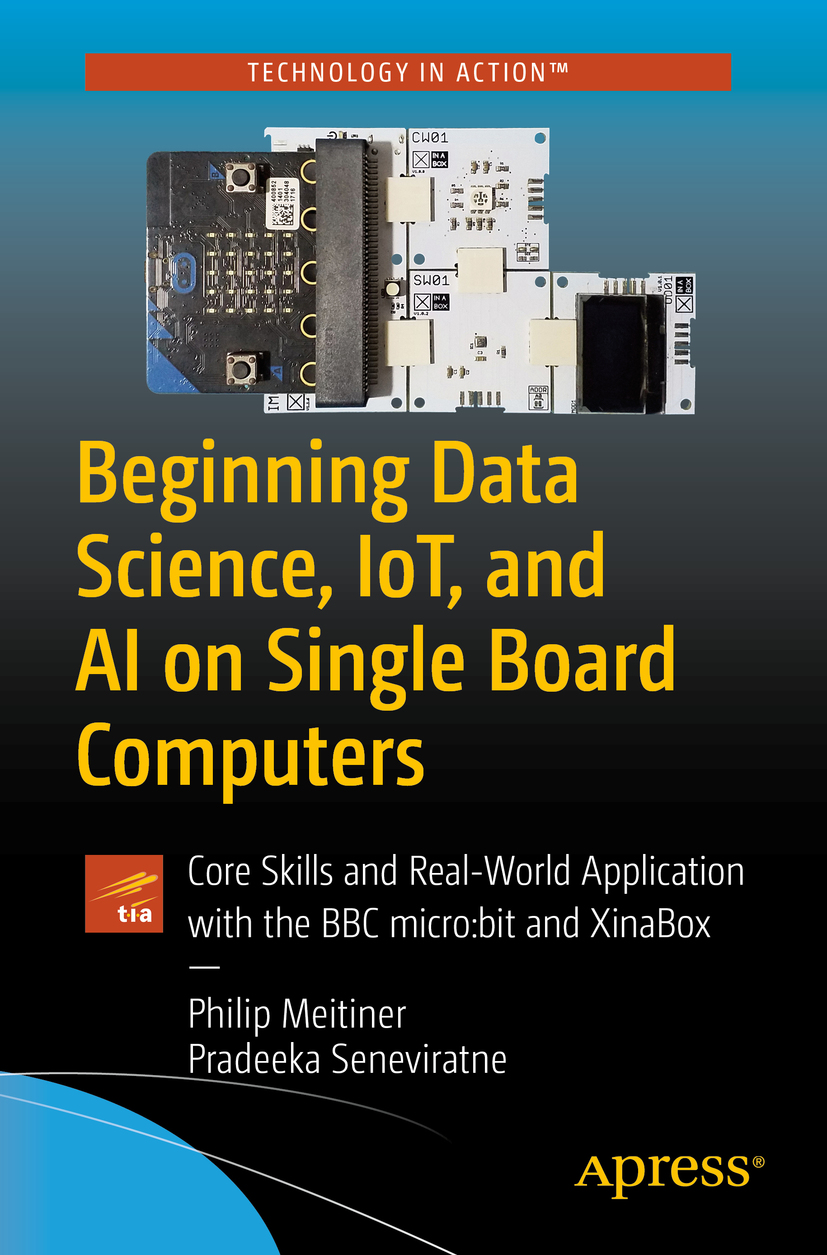Philip Meitiner
Yorkshire, UK
Pradeeka Seneviratne
Udumulla, Mulleriyawa, Sri Lanka
Any source code or other supplementary material referenced by the author in this book is available to readers on GitHub via the books product page, located at www.apress.com/978-1-4842-5765-4 . For more detailed information, please visit http://www.apress.com/source-code .
ISBN 978-1-4842-5765-4 e-ISBN 978-1-4842-5766-1
https://doi.org/10.1007/978-1-4842-5766-1
Philip Meitiner, Pradeeka Seneviratne 2020
This work is subject to copyright. All rights are reserved by the Publisher, whether the whole or part of the material is concerned, specifically the rights of translation, reprinting, reuse of illustrations, recitation, broadcasting, reproduction on microfilms or in any other physical way, and transmission or information storage and retrieval, electronic adaptation, computer software, or by similar or dissimilar methodology now known or hereafter developed.
The use of general descriptive names, registered names, trademarks, service marks, etc. in this publication does not imply, even in the absence of a specific statement, that such names are exempt from the relevant protective laws and regulations and therefore free for general use.
The publisher, the authors and the editors are safe to assume that the advice and information in this book are believed to be true and accurate at the date of publication. Neither the publisher nor the authors or the editors give a warranty, express or implied, with respect to the material contained herein or for any errors or omissions that may have been made. The publisher remains neutral with regard to jurisdictional claims in published maps and institutional affiliations.
Distributed to the book trade worldwide by Springer Science+Business Media New York, 233 Spring Street, 6th Floor, New York, NY 10013. Phone 1-800-SPRINGER, fax (201) 348-4505, e-mail orders-ny@springer-sbm.com, or visit www.springeronline.com. Apress Media, LLC is a California LLC and the sole member (owner) is Springer Science + Business Media Finance Inc (SSBM Finance Inc). SSBM Finance Inc is a Delaware corporation.
Foreword
I worked for the BBC for 17 years, all of them in the BBCs Learning department, that part of the BBC responsible for developing materials for formal learning students, teachers, and schools and for all those people who just wanted to learn something new, whats called informal learning. In the last part of my BBC career, I ran BBC Learnings Innovation team, which is where I created the BBC micro:bit in response to the BBCs ambition to inspire its audience to engage with coding, computer technology, and digital creativity.
While leading the Innovation team, I was deeply interested in three literacies: digital literacy, media literacy and data literacy. I believe these literacies are vitally important to us, because, in the end, they are about citizenship, about providing a societys citizens with the tools to understand, safely live in and meaningfully contribute to their society and its cultures and to help shape the futures of those societies and cultures. In the world we live in, with its central focus on computer and digital technologies and its deep reliance on data, it seems to me digital and data literacies are core requirements for any citizen; they are disenfranchised without them, and any resource helping them effectively acquire them is much needed.
The BBC and its partners developed the BBC micro:bit to help children get to grips with digital literacy: to offer young people a simple, fun, and engaging way to develop digital skills and creativity that was physical in nature something they could hold in their hands and was low-cost enough to be given away. The BBC micro:bit was designed, from the outset, to be a learning tool, a device that would help young people start coding, making, and building, to help them think about something they wanted to produce and have the skills and tools to realize their ambitions. At its core, its aim was to support the development of a new generation of tech pioneers, to help todays young learners be the creators in our society, not just its mere consumers.
I never got the opportunity at the BBC to start thinking about tackling data literacy; however, I did have the satisfaction of believing the BBC micro:bit would probably be a useful learning tool with that too. The device was built to be used in a number of different curricula, the obvious ones like Computer Science, Science, Mathematics, and Design and Technology and the less obvious like Art, Music, and Dance. Our thinking was that in Computer Science it would help students understand how a computer worked and how to program one. However, in the other curricula, its use was intended to be different. In Science and Mathematics, we thought the micro:bit would enable the collection and analysis of scientific data. For Design and Technology, the micro:bit was a tool for invention a device that would collect environmental or control data and make use of it in directing elements of a product. For Art, Music, and Dance, the micro:bit was to be a performance tool, a device for collecting various performance data, like the movement of an arm, and converting it to an artistic output, a musical sound, the color or intensity of a light, the movement of a brush whatever the artist/performer wanted. The key micro:bit used in all these other curricula was always the same the collection, analysis, and use of data.
When the partnership developed the BBC micro:bit, there was a huge temptation to build a device that could do everything, so every possible chip and sensor was on it. In the end, we realized that not only was this a cost issue the micro:bit had to be as cheap as possible but it was a learning and community issue. The micro:bit had to have space on it it had to have inbuilt inability so other people could develop it, add things to what it could do, make it better for themselves, and make it useful for the things they wanted to do.
All of this is why it is so satisfying to see this excellent book. The authors put the micro:bit to use exactly as we hoped, as one of a number of enablers, hopefully a very easy one, to help learners understand what it is to be a data scientist, while at the same time they recognized the BBC micro:bit is not perfect for its job. It has to be added to, built upon and for this they use the clever XinaBox while making sure there are always alternatives, including how things are coded. In doing all this, they also recognize, as the BBC micro:bit did, the person using their book is a learner, a novice. Things at the beginning have to be easy; they cannot be immediately overburdened with things not necessary to the core task, so they make sure knowledge of things, like circuit building and computer programming, are not barriers to using their book. At a personal level, I also really like the ethos behind the book. The authors believe the core driver for answering the questions posed in life is human curiosity, an inquisitive human mind, and, though they dont actually use the words, data literacy is a key skill for the world we live in.

